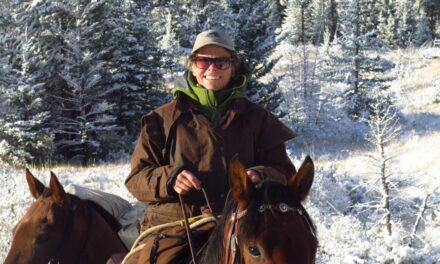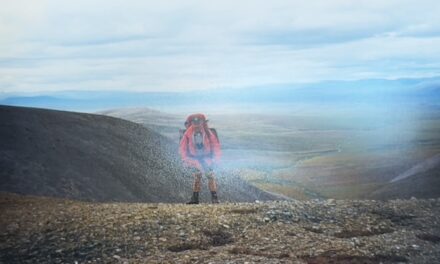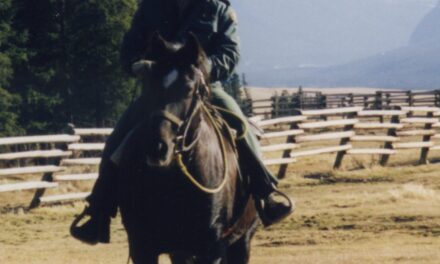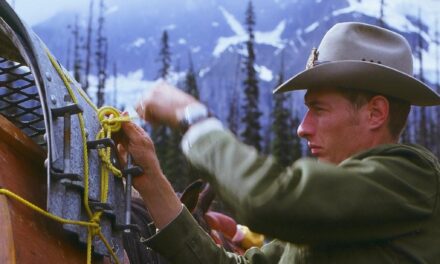Thank you to the Whyte Museum of the Canadian Rockies for granting permission to the Park Warden Service Alumni to post this interview on our website
Park Warden Alumni Society of Alberta
Oral History Project – Spring 2014
Telephone Interview with Ron Davies
Interviewed by Christine Crilley-Everts
April 24, 2014
Place and Date of Birth: Mission City, British Columbia. March 18, 1929.
Occupations: After mining in the north and working as a commercial fisherman, Ron served in the Korean War. Following a war injury, Ron returned to Canada to work as a heavy equipment operator in Prince Albert National Park. He then started with the warden service in 1955. After spending his early warden years in Prince Albert, he moved west to work as an Area Manager in Kootenay. He then returned to Prince Albert for a few years before moving to Wood Buffalo National Park. Following four years there, he headed further north to work as the Chief of Nahanni National Park where he finished his warden career in 1990 after 35 years of service.
Additional Information: Ron’s father came to Canada from England after the First World War. He was the first Chief Warden of Prince Albert National Park where he worked for 35 years.
(0:17) I was born in Mission City, British Columba…March 18, 1929. (In response to the question, “What is you place and date of birth?”) That makes me 85 years old. Nope, I grew up pretty well in…Saskatchewan… (In response to the question, “Did you grow up in BC?”) Well, my father was working for Parks Canada and he sent my mother out to her sister in British Columbia and that’s how I was born in British Columbia, (In response to the question, “What brought your family out to Saskatchewan from BC?”) I was born in Chilliwack, then we came back and spent the early years in Prince Albert National Park…Then I left home about 16 years old, well I was 16, and I went to Yellowknife and I worked in a mine up there. Then I came down and did a little commercial fishing. It all sounds a little disjointed I know! Then I joined the army and I went into the Korean War in 1950. Then I got out of there. Just before the war ended I got hurt. I came out of there and came back to Canada and I got a job with Parks Canada in Prince Albert National Park. I was a heavy equipment operator which I was doing in the IR in Korea. I just went on with that and there came a competition for a park warden and I applied and got the job. So I think it was…1955 when I first to Crean Lake as a junior park warden, it was sort of a trial. I got a permanent there, in those days they called it a temporary or a permanent. I got my permanency. I think it took me a year and a half or so. You had to pay for your hats and uniforms and I wouldn’t pay for my uniform until they told me that I was permanent! That was fair enough eh? (In response to the comment, “I think that is fair!”) …I went from Prince Albert over to a place called the Boundary district and then into a place called the Pine Grove district. Then I went to the Waskesiu district. I was the Waskesiu district warden for about…four or five years and then I transferred down to Kootenay BC and I stayed there around four years and then I went back to Prince Albert. It is pretty hard just off the cuff (to think of the exact years), but anyway then I went to Wood Buffalo/Fort Chipewyan and then I stayed there…another four or five years I guess. Then I was promoted to the Chief Warden of Nahanni National Park. I went to Nahanni, I guess I was only there for a couple of years and then I retired…
(6:04) I was the area Resource Manager in Kootenay. (In response to the question, “Were you a field warden in Prince Albert and Kootenay?”) I got a promotion from Prince Albert. In Kootenay, I went to Kootenay Crossing. Then I went down to Radium and there was a small cabin there just before the Red Rock Canyon…Red Rock was really close to the hot springs. I moved about two or three times when I was in Radium. The Chief Warden in Kootenay was ready to retire. Every time I turned around I had to go in and take his place because he wasn’t very interested anymore! He had put lots of years in then and it wasn’t his fault, he had done his share anyways.
(7:33) No, no it was in the 1990s (In response to the questions, “What year did you retire from the service? Was it the 1980s?”) It was sometime in 1990 that I retired. I got a plaque here for 35 years of service; like, with military time it would have been 38 years, I guess. Government time, you know. I know I paid back my army time and then discovered that I didn’t need it and I couldn’t get my money back! I paid it all back because I thought that I might need it and then I put in all this other time and realized that I didn’t need it. I knew they wouldn’t pay it back, but I wrote a letter anyway! I tried anyway…
(8:38) Yeah, I got around a little bit, not as much as I would have liked too. (In response to the comment, “It sounds like an incredible career. You saw a huge range of places.”) I would have liked to have gone east once, you know. I only got one little trip east, I went down to help them with smelt season. What is the name of that park on Lake Erie there… (Point Pelee) it’s the one where there are a lot of birds…it’s right near where they make ketchup! They used to have a problem with people coming from Detroit and all over and bringing alcohol down on the beach and causing trouble. They used to bring wardens in from all over, so I got one chance to work there for a little while, out in what I call east! It’s not really east it is the middle of Canada really…
(10:06) Yeah, she enjoyed it. (In response to the questions, “Did your wife enjoy the warden life? Was she from Saskatchewan?”) She was part of it, like a wardens wife is half a warden, more so in those days. In the early days she had to look after everything while I was out on patrol. The district wardens we used to patrol regular, we had to. In our park, in Prince Albert, the one I started working in, we patrolled with a horse and a toboggan. We did that and while you were doing that, your wife had to answer all the phone calls and look after the place and keep the fires going. Wardens’ wives never were compensated for the work they did for the park. Yeah, I read it and it was absolutely truthful. It was just absolutely the way it was. (In response to the question, “Have you read the book Silent Partners. (Ann Dixon who was married to warden Fred Dixon wrote and self published the book Silent Partners. It is a collection of stories from women whose husbands were part of the warden service. )
They supplied the tourists with fresh water, or if they wanted to go to the bathroom, or a baby was crying, oh it was millions of things that they did. At Crean Lake the boats used to come to the docks in the summertime and the warden would be out on the lake and the warden’s wife would be out entertaining tourists, visitors we called them. Yeah, we had five kids all together… (In response to the question, “Did you have children when you were out on the district?”) We lost three in later years…yeah well, that’s just how it was. (In response to the comment, “Oh, I am so sorry.”) We didn’t lose any until they were a little older. But we had five little kids on the sandbank, we took a picture of them years ago at Crean Lake. At one time we decided that we were going to get our own place, so we bought a quarter section with a little store on it, so my wife went and ran that (In response to the comment, “She must have been an incredibly busy woman, five little kids and running a district.”) That was when we were stationed out, the second time I came back. She ran the store and the post office and I camped out at Waskesiu in a trailer there for a little while. That was for two or three years I guess. That was when they decided that wardens wouldn’t be in districts anymore. That was one of the changes…it had to happen…that was the Sime Schuler Report. (Jim Sime and Don Schuler began a national study of the Warden Service. “The Park Warden Function in the National Parks Service” was approved in 1968. Following the Sime-Schuler report there were two major changes in the Warden Service; centralization (end of the district system) and the reclassification of wardens from an operational to a technical group.)
We centralized and from then on the warden service sort of changed. We weren’t the same. We didn’t have districts anymore we just sort of looked after the park from a central location. I can’t criticize it because I don’t know how it affected Parks Canada financially or anything like that. I won’t make any comments. I would just as soon not get into it.
(14:25) He was the Chief Warden of Prince Albert National Park for 35 years, the first 35 years. (In response to the question, “Just to go back a little, you said your dad worked for Parks, was he a warden as well?”) He worked for Dominion Forestry before the Park ever started. When the Park started he just transferred over to national parks. They promoted him to what in those days they called a supervising warden and then he got to be the Chief Warden. He never went to any other park, Prince Albert was where he worked all those years. But he came over, he came over from the First Great War, he came over from England. He flipped a coin whether he was going to Australia or Canada. I guess British soldiers were allowed passage to one of the so called “colonies” in those days. He flipped the coin and he said it came up Canada, so he went to Canada. He was a teamster if you can believe that for the Canadian Forestry, which incidentally they had it all set up. They had towers, lookout towers all that sort of thing was set up here when the park started.. (Prince Albert National Park was established by order-in-council on March 24, 1927. It was officially opened on August 10, 1928 by Prime Minister William Lyon Mackenzie King. http://www.pc.gc.ca/eng/pn-np/sk/princealbert/natcul/natcul1/b.aspx)
But it wasn’t the same as the wardens, it was different. They were more about the protection of the forests not game or trapping. I think they pretty well shut down in the winter…Then in the early days…the Superintendent moved to Prince Albert. They had an office in Prince Albert and really they only came out during the summer months. If they had children, they were only out here for July and August and then they were back, that was the school holiday and that’s about all they were in the park…July and August and then they went back to the office in Prince Albert. So the park wardens sort of looked after everything until the park Superintendent and the park engineer in those days it was an engineer, a fully qualified civil engineer, who was the second to the Superintendent (came out in the summer). Most parks were like that. I don’t say most parks had no Superintendent in them all winter, probably we were the only one. That was the set up, a Superintendent in the park and a civil engineer was usually in every park. In Prince Albert, that’s how it went until the Superintendent started busing children to local schools, bus rides of 40/50 miles. I don’t think it was a hell of a good idea, but I guess they did.
(18:22) Well, I met my wife, Reta, she was from Prince Albert, she worked in the Royal Bank. (In response to the questions, “Was your wife from Prince Albert? Where did you meet her?”) I didn’t meet her because I was that awful damn rich! I met her through a cousin who worked in the Royal Bank. My cousin wouldn’t come and drink beer with me unless she had another woman with her, so she brought my wife. That’s how I met her. So we could have a beer, or a little party, or whatever, go to the beach or something. Yep, she grew up on a farm. (In response to the question, “Did she grow up on a farm?”) No, it wasn’t that big of an adjustment for her for horses and as far as that kind of life. (In response to the question, “So it wasn’t too big of an adjustment then?”) There were no neighbors at Crean Lake all winter. The nearest place was Waskesiu Lake…that was 25 miles I guess in snow and ice. But we had the old bush line; you know the old one-line forest line and a crank phone. Our number was three long and two short and Kingsmere was three long and three short! That is what we would listen for. When the winds came up and the bad weather we were always fixing phone lines. The phones were always in the park, it was the same thing all over.
(20:17) Well, being a district warden, that was the best part of my life in there, the early days. (In response to the question, “What did you like best about being a warden?”) I suppose everybody looks back on the young part as the best part…Any warden that had his own district and I had three of them, four of them all together being transferred around Prince Albert, you pretty well were the boss of your district eh. If you had a fire, you were the fire boss, if you had any kind of an incident it was sort of like in your own little country. You felt a lot of responsibility for that area that was your district, your phone line had to be just as good or better than the fellow next to you…and your corrals and your buildings, where your tools were, your fire equipment, you had a real pride in it! You never saw fire equipment looked after (as well) after that…In the district days the axes were shiny and clean and sharp and they were hung (neatly). The warden next door probably had to have a look at your fire equipment, make sure his was up to snuff. So, I’d say that was the best part of my park life, being a district warden, prior to the Sime/Schuler report and all that stuff. To me (centralization) was a downer, some of them I guess they look at it as a (good thing). Nowadays they look at it as quite natural because they never had the experience of a district. And you know they are way better educated now than we were.
Christine: “My dad was a park warden and he said the same thing after doing some of the interviews he did, he wouldn’t have qualified either because of the education standards. (Keith Everts was a warden in Banff National Park from the early 1970s until he retired in 1995.)
I mean I couldn’t be a park warden now, I wouldn’t qualify Everything moves on you know, the whole world is moving ahead and you just can’t stand still. We would look a little funny now being district wardens. I guess one would have to have a computer in his district and he would be sitting in front of his computer when he should be out patrolling. You would wind up as a patrolman for a biologist or something, that’s the other way it could have went, I suppose. So it went the way it had to go.
“Was there anything about being a warden that you didn’t like?”
(24:00) Oh yeah, there were things I didn’t like. In the early days for instance you had to phone the Chief Warden to have a Sunday off. We had no hours. I suppose you know that eh? Like there was no eight to five, that came in later. There was no overtime. It was a way of life, not a job really.
So many people have said that.”
Yep, just a way of life. Those things got on your nerves though, having to phone the Chief Warden to see if going away on a Sunday was allowed. And he had to know where you were all the time, so that wasn’t so hot. And anytime politics got mixed up in it, that happened once in a while, somebody would rake you over the coals for something you were doing in the district. I rescued, or I went and got him at midnight (because of) a broken down boat, I am giving you an example, it was a friend of John Diefenbaker, and he was madder than hell that I didn’t find him until midnight. He was lucky I found him at all at Crean Lake in the middle of the night! So that is as close as I come to throwing someone in the lake and losing my job! My wife saved my neck that night. I didn’t know who was going to get thrown in the lake, but it sure as hell wasn’t going to be me…



